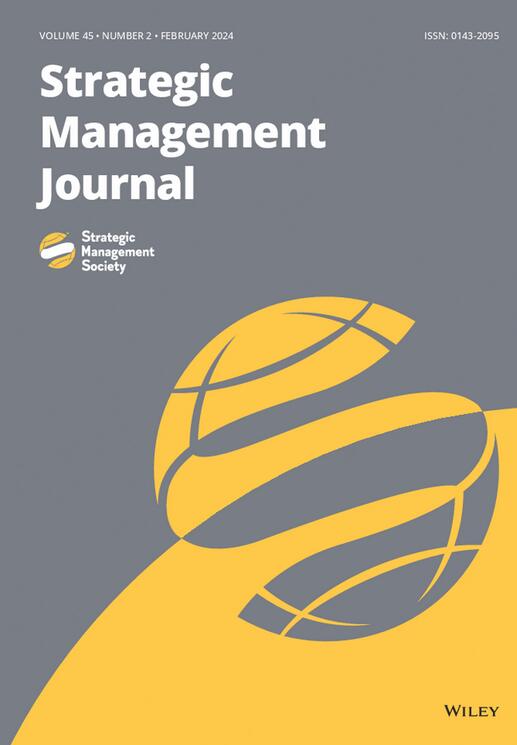Double‐edged stars: Michelin stars, reactivity, and restaurant exits in New York City
IF 7.2
1区 管理学
Q1 BUSINESS
引用次数: 0
Abstract
Research SummaryThis article develops a theoretical framework to explicate how third parties, who are not transactionally involved in a given exchange relationship, can promote or impede the creation and capture of value by influencing market actor beliefs and behaviors. I investigate these issues empirically through an abductive mixed‐method case study of the Michelin Guide's entry into New York City. An examination of two decades of the openings and closings of New York City's elite restaurants indicates that receiving a Michelin star corresponded to an increased likelihood of restaurant exit. Michelin stars appear to have fostered disruptions at recipients' upstream and downstream interfaces, which inhibited their ability to capture value. This ultimately underscores how value network reactivity to third‐party evaluations may lead to unintended consequences for firms.Managerial SummaryThis article explains how third‐party evaluators' reviews, ratings, and rankings can promote or impede the creation and capture of value. This occurs because third‐party evaluations engender reactions by those being evaluated, as well as reactions by other market actors such as competitors and exchange partners. I study these issues within the context of the Michelin Guide's entry into New York City, and my findings indicate that restaurants that received a Michelin star were more likely to close in subsequent years. Evidence suggests that intensified bargaining problems with landlords, suppliers, and employees, along with heightened consumer expectations, created new challenges for these Michelin‐starred restaurants, which ultimately made it more difficult for them to stay in business.双刃星:米其林星级、反应能力和纽约市餐厅的退出
研究摘要本文建立了一个理论框架,阐述了不参与特定交换关系交易的第三方如何通过影响市场参与者的信念和行为来促进或阻碍价值的创造和获取。我通过对《米其林指南》进入纽约市的归纳式混合方法案例研究,对这些问题进行了实证调查。对二十年来纽约市精英餐厅的开业和倒闭情况进行的研究表明,获得米其林星级与餐厅退出的可能性增加相对应。米其林星级似乎助长了获得者上下游界面的混乱,抑制了他们获取价值的能力。这最终强调了价值网络对第三方评价的反应可能会给企业带来意想不到的后果。管理总结本文解释了第三方评价者的评论、评级和排名如何促进或阻碍价值的创造和获取。这是因为第三方评价会引起被评价者的反应,以及其他市场参与者(如竞争对手和交换伙伴)的反应。我以《米其林指南》进入纽约市为背景研究了这些问题,研究结果表明,获得米其林星级的餐厅在随后几年更有可能关闭。有证据表明,与房东、供应商和员工之间的讨价还价问题加剧,加上消费者期望的提高,给这些米其林星级餐厅带来了新的挑战,最终使它们更难继续经营下去。
本文章由计算机程序翻译,如有差异,请以英文原文为准。
求助全文
约1分钟内获得全文
求助全文
来源期刊

Strategic Management Journal
Multiple-
CiteScore
13.70
自引率
8.40%
发文量
109
期刊介绍:
At the Strategic Management Journal, we are committed to publishing top-tier research that addresses key questions in the field of strategic management and captivates scholars in this area. Our publication welcomes manuscripts covering a wide range of topics, perspectives, and research methodologies. As a result, our editorial decisions truly embrace the diversity inherent in the field.
 求助内容:
求助内容: 应助结果提醒方式:
应助结果提醒方式:


